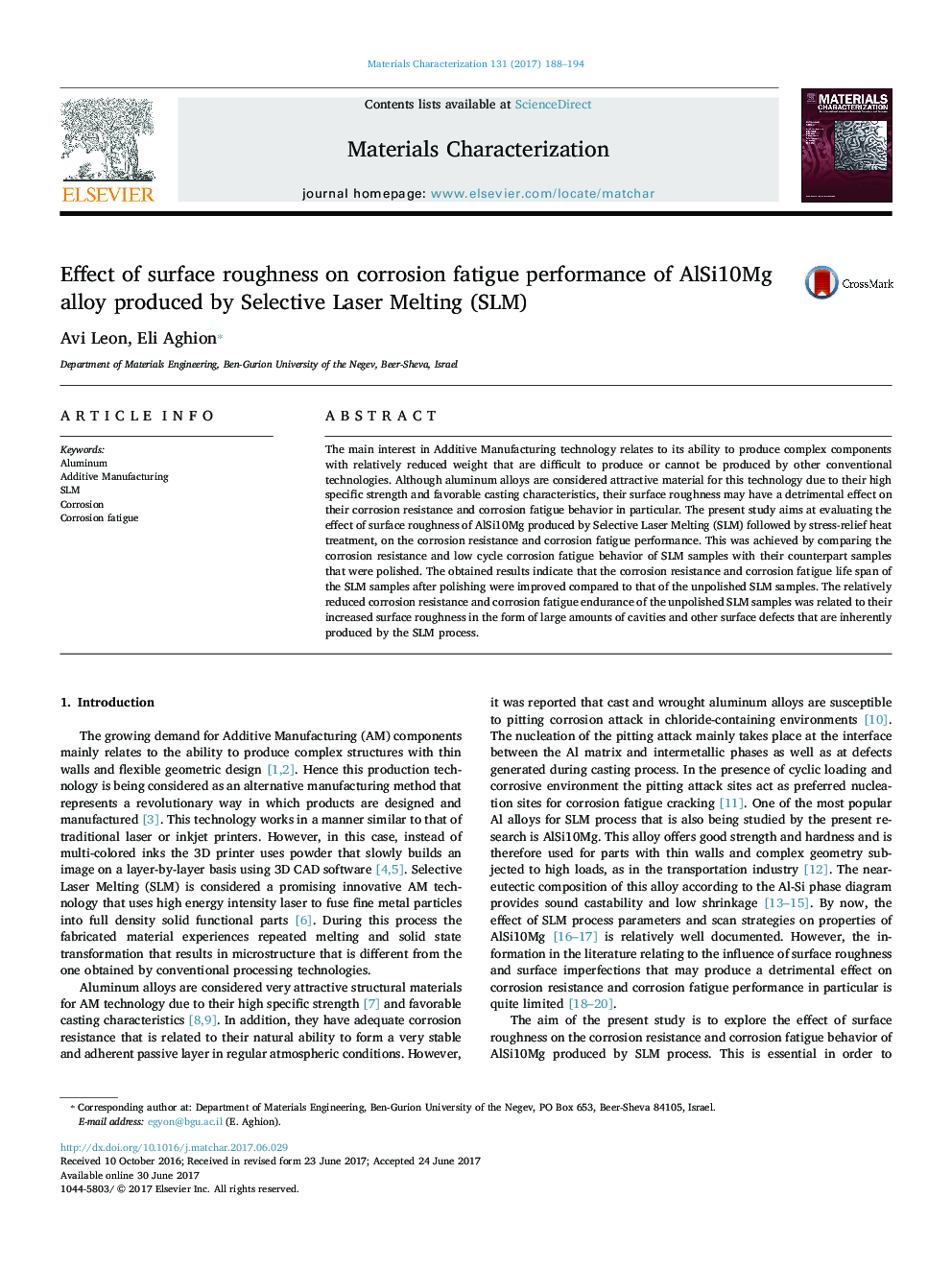| Article ID | Journal | Published Year | Pages | File Type |
|---|---|---|---|---|
| 5454583 | Materials Characterization | 2017 | 7 Pages |
Abstract
The main interest in Additive Manufacturing technology relates to its ability to produce complex components with relatively reduced weight that are difficult to produce or cannot be produced by other conventional technologies. Although aluminum alloys are considered attractive material for this technology due to their high specific strength and favorable casting characteristics, their surface roughness may have a detrimental effect on their corrosion resistance and corrosion fatigue behavior in particular. The present study aims at evaluating the effect of surface roughness of AlSi10Mg produced by Selective Laser Melting (SLM) followed by stress-relief heat treatment, on the corrosion resistance and corrosion fatigue performance. This was achieved by comparing the corrosion resistance and low cycle corrosion fatigue behavior of SLM samples with their counterpart samples that were polished. The obtained results indicate that the corrosion resistance and corrosion fatigue life span of the SLM samples after polishing were improved compared to that of the unpolished SLM samples. The relatively reduced corrosion resistance and corrosion fatigue endurance of the unpolished SLM samples was related to their increased surface roughness in the form of large amounts of cavities and other surface defects that are inherently produced by the SLM process.
Related Topics
Physical Sciences and Engineering
Materials Science
Materials Science (General)
Authors
Avi Leon, Eli Aghion,
